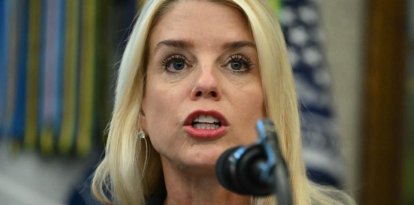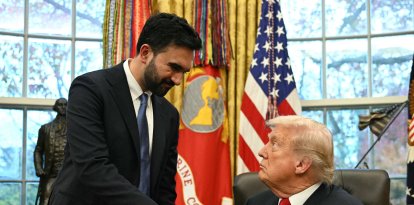California prepares bill to make it easier for illegal immigrants to buy homes
Democratic bill AB 1840 would expand an existing loan program. Although it must still be voted on in the full House and Senate, there are already voices calling for the measure to be replicated in other bills.

House for sale in Los Angeles, California
The California Legislature has a bill in hand that would allow illegal immigrants to access loans of up to $150,000 to buy a home. The initiative, introduced by Democrats, is expected to be voted on in the next few days in both chambers after passing through the committee.
AB 1840 would expand the eligibility of an existing loan program: the California Dream for All. Its recipients receive 20% down payment assistance on their first home (capped at $150,000) that they must repay, plus a portion of the appreciation of the property if they sell it. The program is financed in part with state money.

Sociedad
Un grupo financiado con impuestos ofrece subvenciones para viviendas sólo para no ciudadanos
Santiago Ospital
Political calculations
The project is at the intersection of two of the political debates of the moment: illegal immigration and homelessness. At the national level, they are two of the biggest concerns for voters, two of the main Republican criticisms of the administration and two of the weaknesses that the Harris campaign has been trying to reverse in recent weeks.
Statewide, California has the highest proportion of undocumented immigrants in the country, according to the latest data from the Pew Research Center. It also faces one of the worst housing crises, with high prices, high levels of homelessness and housing shortages.
The Democratic Assemblyman who introduced the bill, Joaquin Arambula, argued that the goal of the rule was inclusion. Although his party enjoys an absolute majority in both state houses, Governor Gavin Newsom, for the time being, has not committed to sign it. According to some analysts, the fact that immigration and homelessness are still on the agenda in the election campaign could pose an obstacle for Democrats, who fear giving Republicnas a new argument.
"I just can't get behind using our limited dollars for people who are in this country undocumented when we have very limited funds," Rep Joe Patterson argued before voting against the rule in the Assembly Standing Committee on Housing and Community Development (he was one of two no votes, against six yes votes).
Patterson, who has a Mexican stepfather and Latino stepbrothers, said he knew firsthand the difficulty of getting papers and defended the importance of immigration, but argued that with "a lot of people suffering in this state" it was impossible for him to support an initiative "giving limited funds to people who aren't here legally."
At the moment the initiative only peeked onto the national stage in comments by Trump campaign spokeswoman Karoline Leavitt, who described the legislative text as "fundamentally unfair but typical Democrat policy," in words picked up by Politico.
Broadening the scope?
According to Politician, CalHFA, California's independent housing finance agency, "has signaled its support" for the proposal and called for it to be expanded to all of the department's programs.
Democratic state Sen. Anna Caballero advanced the idea of expansion at a hearing prior to a vote in committees. After thanking Arambula, with whom she shares a represented district, she argued that she didn't understand how they hadn't thought of the idea before and that illegal immigrants would have to be included in other programs:
"We probably should go through and look at all the different categories where we can say specifically that we want to include undocumented workers and do it because it's the right thing to do."

Economía
El 82% de los estadounidenses sienten que el dinero no les alcanza como antes
Williams Perdomo


























